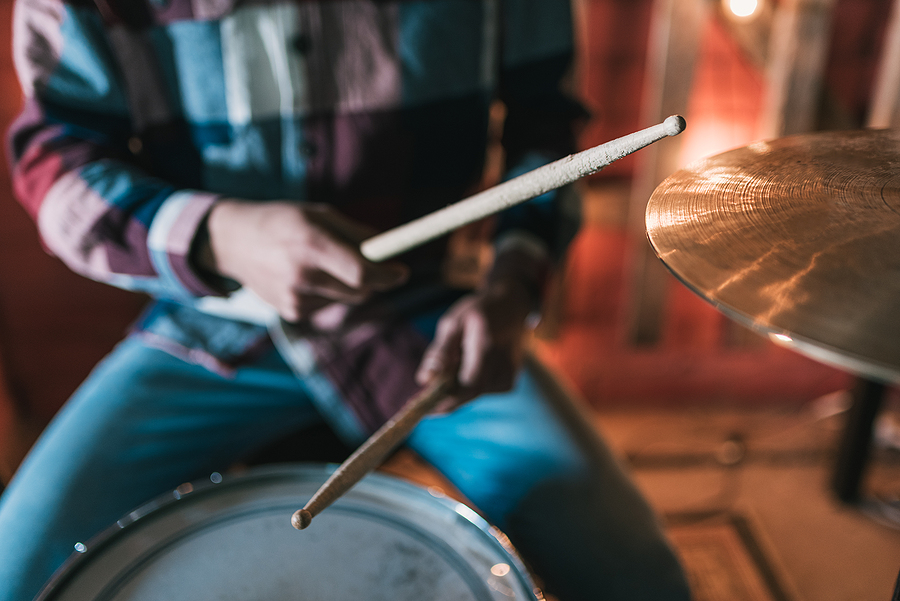5 Beginner Tips for Taking Your First Drum Lessons

It can feel like a steep and challenging learning curve when you first start learning to play the drums. This is especially the case if you’ve never played an instrument before.
Learning to play the drums can be confusing, but with practice and patience, you will get there. Taking drum lessons as part of your initial drumming training is a great way to get started on this new skill, accelerate your progress, and meet other individuals who share your passion for the drums.
Working through this beginner’s guide to playing the drums will give you all the information you need to find your nearest drum school and sign up for drum lessons in Singapore.
1. Find a good tutor
Finding a good tutor is the best way to get started on your drumming journey. Look for an instructor who you connect and feel comfortable working with.
At Drum Tutor, our instructors are dedicated to helping each and every student reach their goals. Our team of experts has curated our lessons to help you master the art of drumming through a solid foundation. With our interactive and practical lessons, you can learn at your own pace and receive feedback after each session.
2. Get to know the parts of a drum kit
If you’ve never seen a drum kit in person, you’ll need to conduct some research before you walk into your first drum lesson. The more familiar you are with the different parts of the drum kit, the easier it will be to get started when you take your first drum lesson.
Each drum has its own purpose, and it’s essential to know how each one works if you want to become a skilled drummer. To get started, look online for pictures of different drum kits, and familiarise yourself with the various components.
By doing some research, you’ll be more prepared for your first drum lesson, and it will be easier to understand what your drum tutor is trying to teach you.
3. Decide on your practice goals
Before taking drum lessons, sit down and think about your drumming goals. Why do you want to learn the drums in the first place? What do you hope to get out of the lessons?
Knowing what you want to get out of your drum lessons will enable you to stay focused and on track. Communicating your goals to your drum instructor is also a good idea. They can then assist you in staying on track to achieve them.
There are lots of different drumming goals you can have. Here are just a few examples:
- Your goal could be to learn how to read music.
- Your goal could be to learn how to play with a metronome.
- Your goal could be to get used to playing with other musicians.
4. Commit to a weekly practice routine
As with any new skill, practice makes perfect. However, that doesn’t mean you can just show up for your drum lessons, have your instructor demonstrate it once, and then expect to master it immediately. This is a skill that requires patience, commitment, and consistent practice. Putting in regular practice can help you get the most out of your drum lessons. It will also help you progress through the learning process much faster.
You may believe that you must practice every day to see immediate results. However, you must allow yourself time to learn and become accustomed to playing the drums. Although you may be eager to get better as soon as possible, pushing yourself too hard will leave you frustrated and tempted to give up.
Spending a few hours each day practising with a metronome will help you get to where you want to be faster. Metronomes are often overlooked as a practice tool, but they can be beneficial for improving rhythm and timing.
5. How to practice for drum lessons
Taking drum lessons will help you get better at playing the drums. However, it’s crucial to remember that your instructor isn’t there to do everything for you.
Taking drum lessons entails receiving guidance from a tutor who is more knowledgeable about the drums than you are. They have years of experience and are ready to assist you in reaching your goals.
Go to your drum lessons with an open mind and an eagerness to learn. If you want to get the most out of your drum lessons, follow your instructor’s directions, and don’t be afraid to ask questions. Your drum lessons will focus on helping you get better at playing the drums. Your instructor will work with you to target your weaknesses and support you in moving through the learning process as quickly as possible.
Conclusion
Beginner drum lessons are a great way to start your drumming journey. Moreover, finding a qualified teacher who specialises in guiding beginners is a smart option. They will assist you in understanding the components of a drum kit, achieving your practice objectives, and committing to a weekly practice routine. By having a teacher assist you in focusing on your areas of improvement, taking drum classes will speed up your learning process.
Consider signing up for beginner drum lessons with Drum Tutor for an enriching and engaging experience. Our lessons are designed to suit students of all experience levels, so whether you’re an adult or a parent searching for a drum lesson for your kid, there are no age restrictions. From fundamentals to new drumming styles, our experts will work with you to improve your abilities, confidence, and love of music. Begin your drumming journey with Drum Tutor today!

